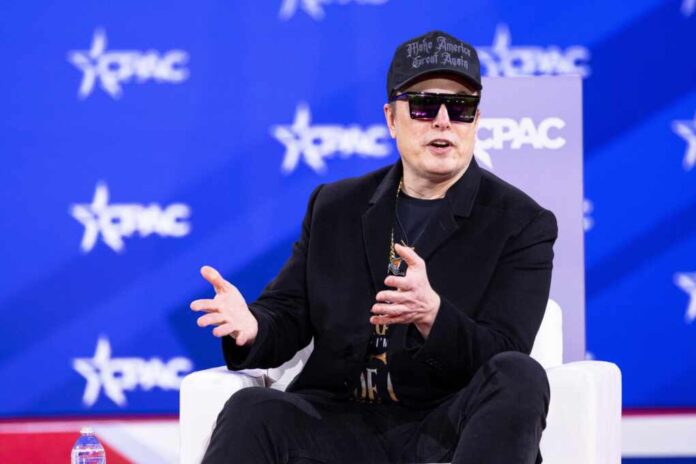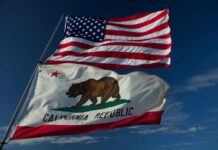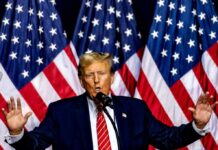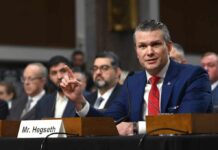
Elon Musk’s dramatic split with President Trump has Democrats eyeing a surprising opportunity to win over the world’s richest man, even as conservative critics warn against the dangers of plutocracy in American politics.
At a Glance
- Elon Musk has left his position as head of Trump’s Department of Government Efficiency (DOGE) after publicly criticizing the president’s “One Big Beautiful Bill Act”
- Trump warned Musk against funding Democratic campaigns, threatening “serious consequences” for the billionaire
- Some prominent Democrats, including Congressman Ro Khanna, are exploring opportunities to engage with Musk on shared policy interests
- Critics argue that both parties’ pursuit of billionaire supporters reveals the outsized influence of wealth in American democracy
- The political battle for Musk’s support highlights the continuing power of individual wealthy donors in shaping national politics
The Trump-Musk Alliance Shatters
The political partnership between President Donald Trump and billionaire entrepreneur Elon Musk has collapsed dramatically, sending shockwaves through Washington. Musk, who had served as head of Trump’s Department of Government Efficiency (DOGE) and contributed significantly to Trump’s 2024 election victory, abruptly departed his position after publicly criticizing the president’s “One Big Beautiful Bill Act.” The legislation, which Trump had touted as bringing “colossal change” to government operations, became the breaking point in their increasingly strained relationship.
President Trump has not taken the criticism quietly. In a series of blistering statements, Trump warned Musk against funding Democratic campaigns, explicitly threatening “serious consequences” if the Tesla CEO were to shift his political allegiance. This extraordinary public feud between two of America’s most powerful figures has created an unexpected opening for Democrats, who had previously watched with dismay as Musk threw his considerable financial and social media influence behind Trump’s successful return to the White House.
— AF Post (@AFpost) February 3, 2025
Democrats Cautiously Explore Musk Alliance
Several prominent Democrats have signaled openness to engaging with Musk despite his controversial past support for Trump. California Congressman Ro Khanna has taken the lead, suggesting that Democrats could find common ground with Musk on issues like science funding and clean technology development. Khanna’s approach represents a pragmatic calculation that policy alignment on specific issues might outweigh broader ideological differences, particularly given Musk’s massive business empire spanning electric vehicles, space exploration, social media, and artificial intelligence.
“It’s sort of Trump derangement syndrome. We have it with others, too. They leave, and they wake up in the morning, and the glamour’s gone. The whole world is different, and they become hostile.”, said President Donald Trump.
Not all Democrats share Khanna’s enthusiasm for wooing Musk. Many progressives remain deeply skeptical, pointing to allegations of workplace harassment, racism, and anti-union activities at Tesla. These critics argue that embracing Musk would contradict core Democratic values regarding worker rights and corporate responsibility. The internal debate reflects broader tensions within the Democratic Party about how to balance pragmatic political calculations with ideological consistency in the pursuit of regaining power.
The Plutocracy Problem
The bipartisan scramble for Musk’s support highlights a troubling reality about American politics: the outsized influence of extremely wealthy individuals on our democratic system. Anthony Scaramucci, who briefly served in the Trump administration, suggested Democrats could win Musk’s support by moderating their policies – effectively arguing that the party should reshape its agenda to appeal to a single billionaire. This approach epitomizes what critics describe as America’s drift toward plutocracy, where the preferences of the ultra-wealthy carry disproportionate weight in policy decisions.
During his brief tenure at DOGE, Musk oversaw significant government downsizing while his companies simultaneously secured lucrative federal contracts. This dual role as both government reformer and government contractor exemplifies the complex, often contradictory relationships between business leaders and the public sector in modern America. For conservatives concerned about constitutional principles and limited government, the spectacle of political parties competing for billionaire patrons represents a troubling departure from the founders’ vision of a republic governed by and for ordinary citizens.
America’s Democratic Crossroads
The Musk-Trump split and its aftermath present a crucial moment for reflection on the health of American democracy. When both major political parties eagerly court the favor of the world’s richest man, it raises fundamental questions about representation and accountability in our system. For conservatives who value traditional American principles of self-governance and equal citizenship, the increasing concentration of political influence among a small circle of billionaires represents a concerning trend that threatens to undermine the republican foundation of our nation.
As this political drama unfolds, Americans across the political spectrum must consider whether a system so heavily influenced by individual wealth truly reflects the democratic ideals that have sustained our republic for nearly 250 years. The ultimate resolution of the Trump-Musk feud may prove less significant than what the episode reveals about the evolving relationship between money, power, and governance in 21st-century America.

























